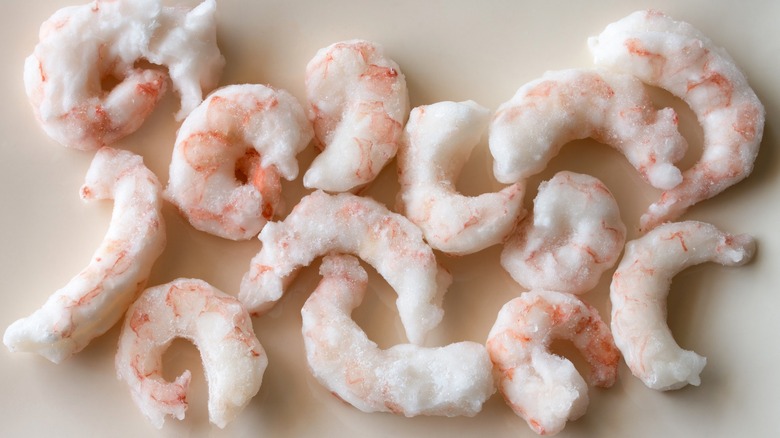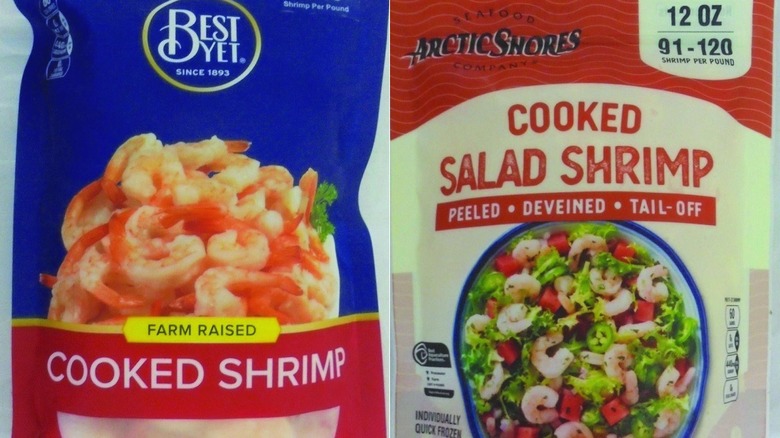Double Check Your Freezers – More Shrimp Recalled For Radioactive Contamination
Just days ago, the FDA notified the public about a recall on shrimp at Walmart for a shocking reason — a radioactive isotope was found in the seafood. Well, apparently, this wasn't an isolated incident, as a second shrimp recall has been issued by Southwind Foods for the exact same reason. The radioactive chemical in question is Cesium-137, and the FDA is urging people who may have purchased the shrimp to throw the product away or return it for a refund if they find it in their freezer.
Arctic Shores Seafood, Best Yet, First Street, Great American Seafood Imports, and Sand Bar are the brands folks will want to be on the lookout for. It's unknown which retailers specifically were provided with the contaminated shrimp. However, they were delivered between July 17 and August 8 to companies in nine states: Alabama, Arizona, California, Massachusetts, Minnesota, Pennsylvania, Utah, Virginia, and Washington. Having to watch out for shrimp at the grocery store with radiation contamination probably wasn't on anyone's bingo card this year, but here we are.
What is Cesium-137, and how did it contaminate shrimp?
The radioactive isotope at the center of the recent shrimp recall typically comes from nuclear reactors and weapons testing by way of the nuclear fission process. It might look like an off-white, silvery metal, but will turn into a powder when it links up with chlorides. Cesium-137 isn't found naturally in the environment. If ingested, it can increase one's risk of cancer as it exposes soft tissues in the body to high-energy gamma radiation.
How shrimp, of all things, were contaminated with Cesium-137 hasn't been disclosed as of yet. Costco shoppers can thank their lucky stars that the company behind Kirkland Signature shrimp wasn't one of the companies behind the tainted seafood. However, folks who shop elsewhere would do well to double-check their freezers to be sure they haven't purchased shrimp from any of the brands involved in the recall. Given that over a dozen lot numbers are identified in the recall, it's clear this is more widespread than some would like to admit.

